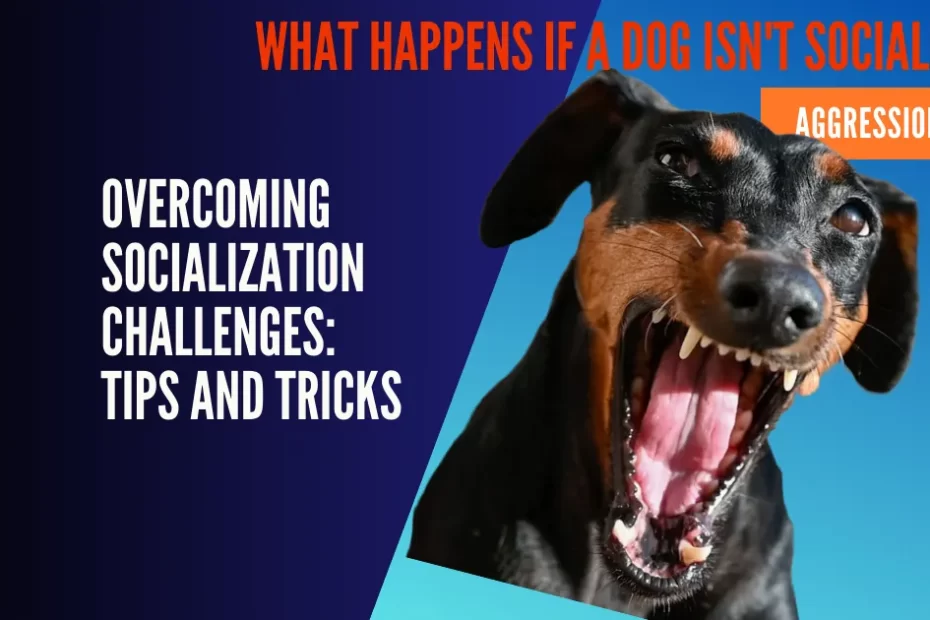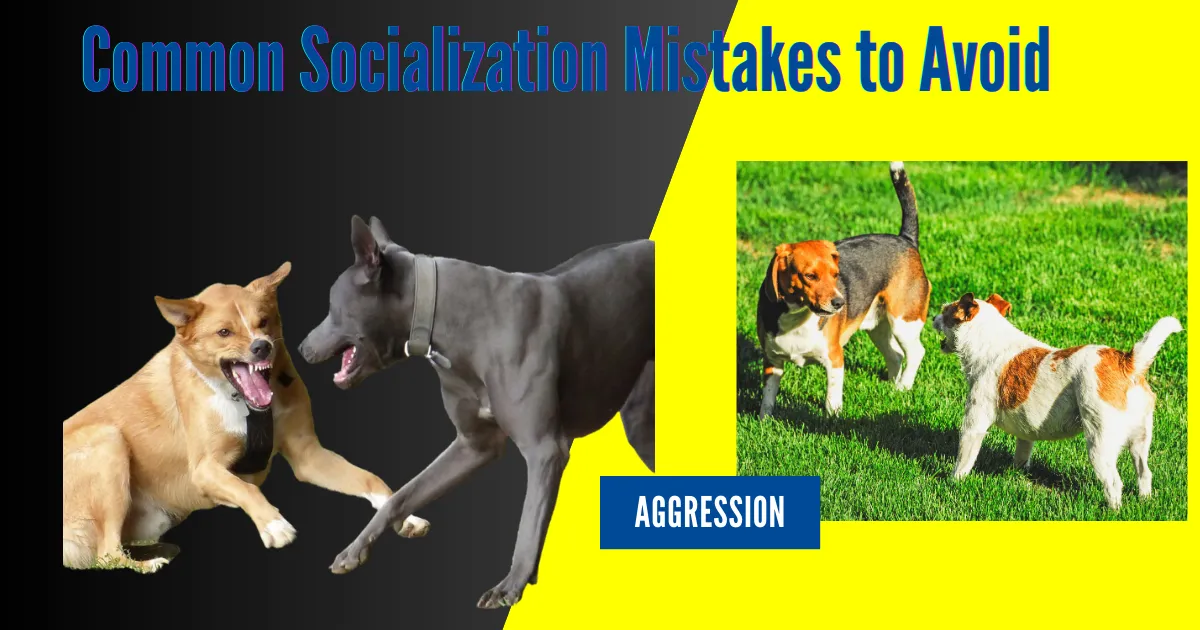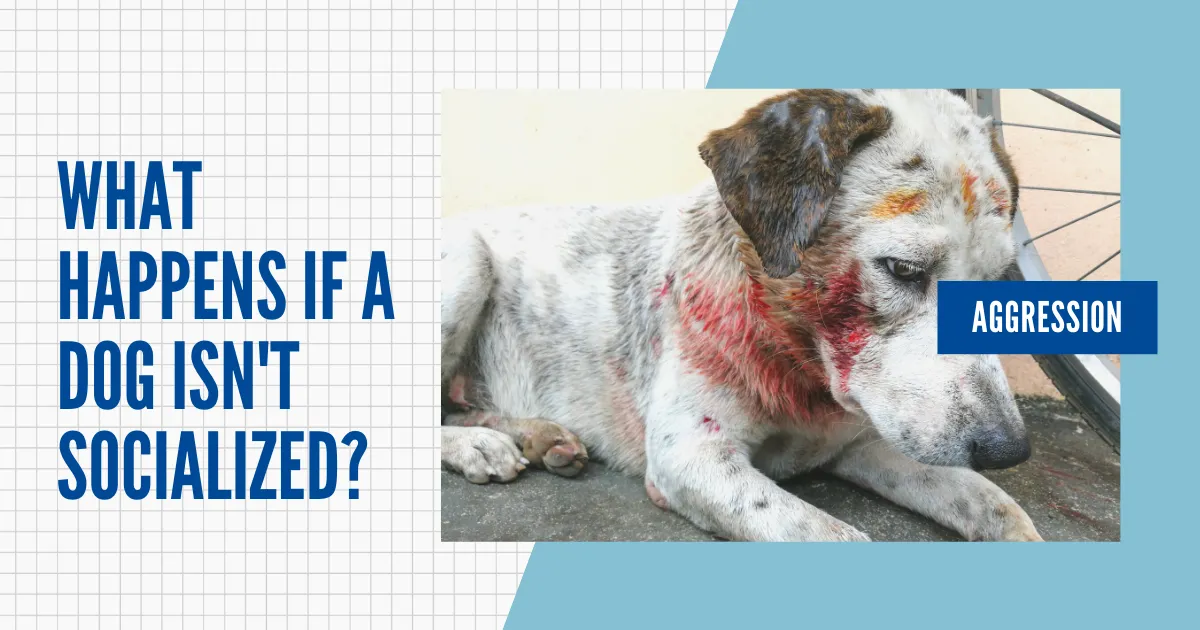Socializing A Reactive Dog: Dog socialization is crucial to training and caring for our beloved furry companions. Introducing dogs to various social situations and environments is essential to help them become well-adjusted and comfortable with humans and other animals.
In this article, we will explore the importance of dog socialization training and provide valuable tips to ensure a positive and enriching experience for your canine friend.
The Significance of Socializing A Reactive Dog
Dog socialization training allows your dog to lead a happier and more carefree life. Socialized dogs are friendly to other animals and people, while unsocialized dogs often suffer from anxiety and aggression due to the fear they experience in unfamiliar situations. The process of dog socialization training is more than just a recommended practice—it is a vital step in raising a happy and well-behaved dog. Here’s why it matters:
- Promotes a happier and carefree life for your dog.
- It helps prevent anxiety and aggression in unfamiliar situations.
- Fosters positive interactions with other animals and people.
- Builds trust and confidence in your dog’s new surroundings.
The Consequences of Neglecting Dog Socialization
Without proper socialization, dogs may develop anxiety and fear toward unfamiliar situations. Signs that your dog may not be adequately socialized include overexcitement around other dogs, aggression or shyness around people, and nervousness during walks. Prioritizing socialization needs is crucial to ensuring your furry friend’s harmonious and stress-free life.
Understanding Aggressive Behavior in Dogs
Aggressive behavior in dogs is often misunderstood. Recognizing that aggression is a learned response that can be unlearned through training is crucial. Factors such as abuse, neglect, separation anxiety, or fearfulness can contribute to aggressive behaviors in dogs.
Seeking professional help is essential when dealing with aggressive tendencies in your furry friend. Dogs are social animals who thrive on human companionship. They also love attention and affection.
When their owners become anxious or stressed out, these traits can turn into aggressive behavior. This can cause serious harm to both humans and pets.
Socializing A Reactive Dog: Practical Tips & Expert Advice
Socializing a reactive dog can be a rewarding journey when approached with patience and consistency. Whether your dog is young or already an adult, these strategies will help make social interactions more positive and enjoyable for both of you.
Gradual Introduction to Social Situations
| Tip | Details |
|---|---|
| Start with Controlled Interactions | Begin socializing a reactive dog by observing other dogs or people from a distance. Let your dog feel safe while watching and processing the environment. Gradually decrease distance as your dog becomes more curious and calm. |
| Use Walks for Exposure | Take long walks in various areas like parks, quiet streets, and public paths. This introduces your dog to different sounds, smells, and sights—essential in socializing a reactive dog slowly and steadily. |
| Use Digital Resources | Explore dog socialization apps and online platforms that provide virtual training sessions, meet-up opportunities, and interactive exercises to build confidence at your dog’s pace. |
| Positive Reinforcement | Always reward your dog for relaxed or curious behavior with praise, treats, or their favorite toy. Reinforcing calm behavior makes socializing a reactive dog much more effective and enjoyable. |
Tips for Socializing an Older Dog
| Tip | Details |
|---|---|
| Frequent Walks | Older dogs benefit from regular exposure to new environments. Walks introduce mild stimuli and help reduce sensitivity over time. |
| Controlled Playdates | Start small—schedule play sessions with friendly, calm dogs in neutral spaces. Gradually increase intensity and duration as comfort grows. |
| Vary Your Routes | New neighborhoods and outdoor settings provide different stimuli. Exposure to a variety of settings boosts adaptability when socializing a reactive dog. |
| Professional Guidance | If challenges arise, seek help from a certified trainer or behaviorist. Obedience classes can also provide structured environments for social growth. |
Why Socializing A Reactive Dog Matters
Reactive dogs aren't aggressive—they’re often fearful or overstimulated. Socializing a reactive dog builds trust, confidence, and long-term emotional stability. With the right techniques, even an adult or older dog can learn to enjoy social interactions and reduce reactivity triggers over time.
Socializing A Reactive Dog: Making Socialization Training a Priority
Socialization training is vital to our canine companions’ overall well-being and behavior. By prioritizing socialization from an early age and implementing gradual and positive exposure to various social situations, we can help our dogs become well-adjusted, confident, and friendly members of society.
Here are some final thoughts to consider:
-
Commitment to lifelong socialization: Socialization is not a one-time event but an ongoing process throughout a dog’s life. Continuously exposing them to new environments, people, and animals will help maintain their social skills and prevent regression.
-
Tailoring socialization to individual needs: Each dog is unique, with different temperaments, personalities, and past experiences. It’s essential to adapt the socialization process to suit their specific needs, considering any fears, anxieties, or limitations they may have.
-
Consistency and positive reinforcement: Consistency is vital in socialization training. Reinforce positive behaviors and provide rewards to create positive associations with social experiences. Consistent exposure and positive reinforcement will help your dog feel more comfortable and confident in various social situations.
-
Seek professional guidance when needed: If you encounter challenges or specific behavioral issues during the socialization process, don’t hesitate to seek guidance from a professional dog trainer or behaviorist. They can offer expert advice, personalized strategies, and additional support to ensure successful socialization.
-
Patience and understanding: Socialization may take time, and progress can vary from dog to dog. Be patient with your furry friend and understand that each step forward is in the right direction, no matter how small. Celebrate their achievements and provide a safe and supportive environment for their growth.
Remember, socialization training is a lifelong investment in your dog’s happiness, well-being, and overall quality of life. By prioritizing socialization and embracing the journey, you can create a strong bond with your dog and foster its ability to thrive in various social settings.



Treats are great for training and bonding but give them in moderation.
When dealing with aggression in dogs, safety should always come first. Avoid situations that may trigger aggressive behavior and seek professional help to create a behavior modification plan
Thank you for your sharing. Socializing a dog takes time and patience. Don’t get discouraged if your pup isn’t a social butterfly overnight. Keep practicing and celebrate small victories!
Great tips! Positive reinforcement is key. I always reward my pup with treats and praise for good behavior during social interactions.